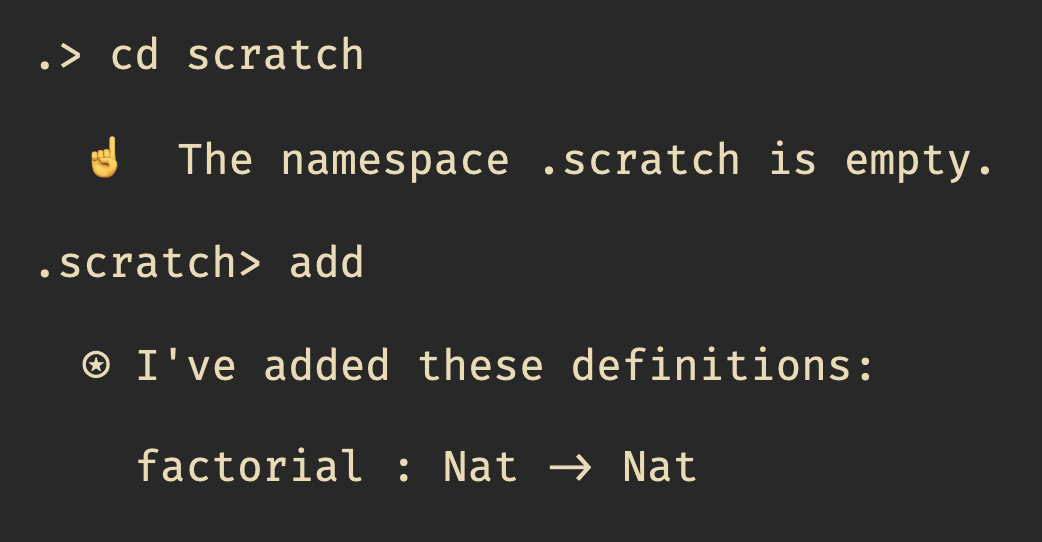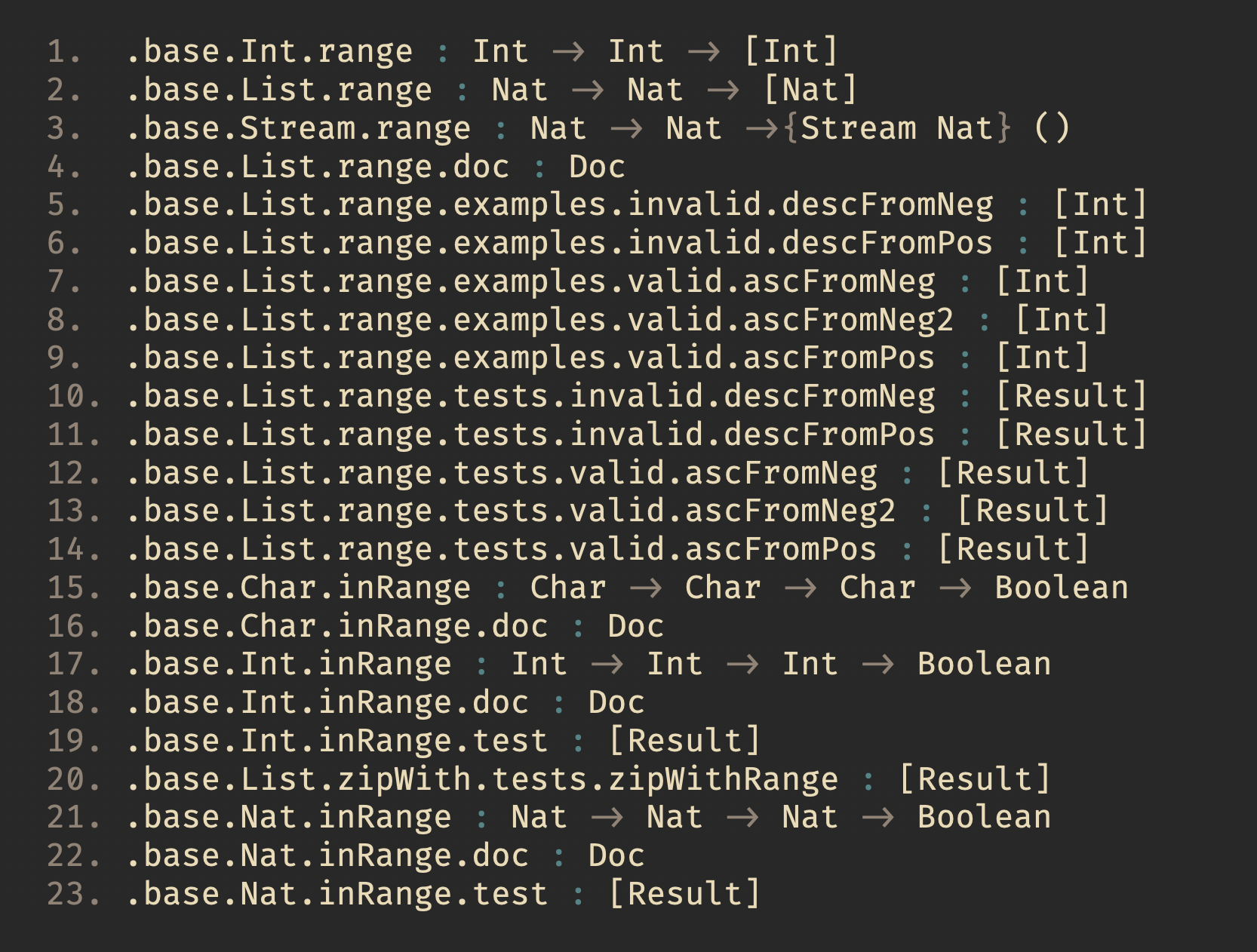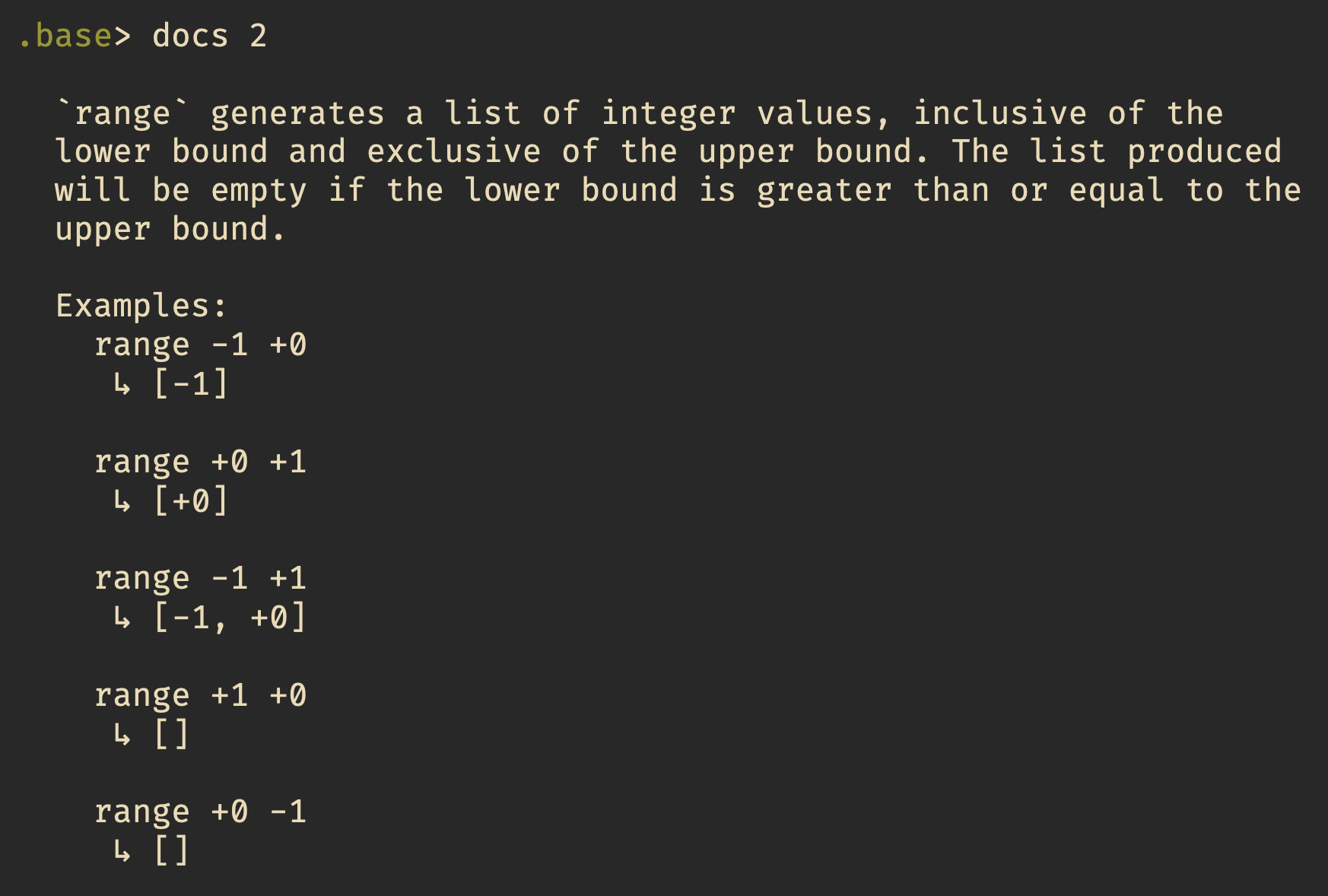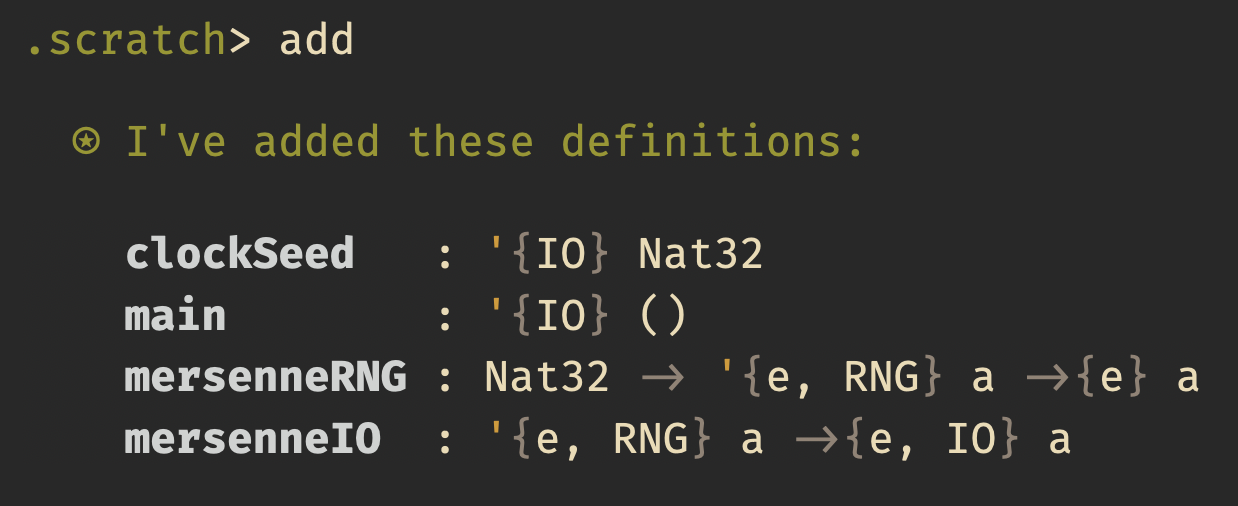Last week we released another Unison alpha milestone. This release has a number of bugfixes and performance improvements. 🌈⭐️
It's exciting to see Unison gradually coming together, but even more exciting has been seeing people writing and publishing Unison code. I've been pretty busy reviewing pull requests to the Unison base libraries, and there's already a lot of useful stuff there. Thanks to everyone who has contributed so far!
A number of folks have been working on their own Unison libraries and we're collecting these on a page of this site. I want to highlight just one of these, which is a random number generator. There are many other cool libraries, but I picked this one at random. The main thing I want to highlight is just how easy it is to create and use Unison libraries.
Starting up
If you've been putting off trying out Unison because you think getting into a new language might be a lot of work and involve a lot of setup, then I've got good news for you: Unison requires almost no setup. You can just start coding.
To get going with Unison, you can go through the three minute quickstart guide. It only has three steps.
Once set up, ucm starts the Unison Codebase Manager:

I can now just start writing Unison code in any file in the directory from which I started ucm, as long as that file's name ends in .u. I open up a file scratch.u with vim (my favorite editor), and write my first definition, the obligatory factorial function:
factorial n = List.foldr (*) 1 (range 2 (n + 1))If I save my scratch file, Unison responds with:

It's telling me that factorial is a function that takes a Nat (a 64-bit unsigned integer), and returns another Nat. I can add this function to my codebase:

I can try out my function right in the scratch file by adding a "watch expression", which is any line that starts with > (or an indentation block where the first line starts with >).
> factorial 10Unison reponds by evaluating my expression:

Looking around the base library
The base library is already full of good stuff, with new things being added almost daily now. To see what's here, I can browse with UCM. If I do list .base (or ls .base), I get a long list. I can cd into any namespace and look around with ls.
In the definition of factorial above, I was using foldr and range. If I ask UCM to find range, it responds with everything it knows about with range in the name:

The second entry is the function I was using, List.range. I can ask for its definition either by name or by using the number from the list that UCM produced:

The docs command (try help docs) shows me the documentation for a given function or type, if it has any docs associated with it.

Let's have a look at a third-party library
Looking at the list of libraries that people have already made, I want to pick one, kind of at random, and just play with it to give you a feel for what it's like to consume libraries in Unison. And speaking of random, it looks like one of them is a random number generator that uses a Mersenne twister, written by Chris Gibbs. Let's try that out.
Chris has supplied handy install instructions, so let's just do as he says:
.> pull https://github.com/atacratic/unison-random-mersenne.git:.releases._v1 external.unison_random_mersenne.v1Lots of stuff scrolls by, and Chris's library is now in my codebase. The namespace external.unison_random_mersenne.v1 is kind of long for my taste, so I'm just going to move it under lib.rng.
.> move.namespace external.unison_random_mersenne.v1 lib.rngI'm using tab completion for this instead of typing out the whole thing. I cd lib.rng and look around.

Looks like there's a README, which is a Unison value of type Doc. I can ask UCM to render any Doc with the display command. In the README there's a usage example which shows me how to generate some random numbers.
I put a triple dash ---, a "fold", on a line at the top of my scratch.u file, which tells Unison to ignore everything below. I've already added factorial to my codebase, so I don't need to think about that anymore. It goes below the fold. Above the fold, I put an expression to generate a single random number between 0 and 10 which I got from the README.
> mersenne.provide (nextFromRange 0 11) defaultSeed 'ask
---
factorial n = List.foldr (*) 1 (range 2 (n + 1))I wonder what this mersenne.provide is. Let's ask Unison.

OK, so provide generates numbers by providing a Store State ability, where State is the Mersenne twister's internal state. The Nat32 is the seed, and this Ask n thing is a computation that can ask for a random n (which in my case is going to be Nat).
Looks like this library puts a lot of its guts on display, so I'm going to try to write a more abstract interface for it. What I really want for a random number generator ability is something like this:
ability RNG where
nextNat : NatI can write a (recursive) handler for this ability that uses the Mersenne twister:
mersenneRNG : Nat32 -> '{RNG,e} a ->{e} a
mersenneRNG seed x =
h = cases
{ nextNat -> k } -> handle (k !nat.next) with h
{ a } -> a
mersenne.provide '(handle !x with h) seed 'askGreat! So now I can request a random Nat just by saying nextNat, and I can handle that request with mersenneRNGby providing a seed. But sometimes I don't want to provide a seed, and I just want to generate a random number as an IO effect. Let's try to feed it the system time.

OK, we can get an EpochTime, which wraps a Nat, using systemTime. Can we turn that into a Nat32 as required by mersenneRNG? A type-based find turns up 3 different functions:

Skimming the docs for these, I see that truncate32 is probably the thing I want. It truncates the high 32 bits, leaving me with just the least significant bits of the clock. So I write:
clockSeed : '{IO} Nat32
clockSeed _ =
match !systemTime with
EpochTime t -> truncate32 tAnd finally I use the mersenneRNG handler from earlier:
mersenneIO : '{RNG,e} a ->{IO,e} a
mersenneIO x =
mersenneRNG !clockSeed xAn example of using this in a program might be:
main : '{IO} ()
main = 'let
printLine (Nat.toText (mersenneIO 'nextNat))I add all of that to a scratch namespace in my codebase:

Let's try to run it. UCM provides a run command which provide the IO ability to something of a type like '{IO} a.

Great! I got a random number using the system clock time as a seed. Maybe at some point I'll send a pull request to Chris so he can incorporate some of this into his library.
Conclusion
I hope this gives you a taste of what it's like to work in Unison with the current alpha release, and that this encourages you to try it out and maybe contribute some libraries. Remember, it's early days yet, so little things you build now could make a big impact on the Unison community for the future.